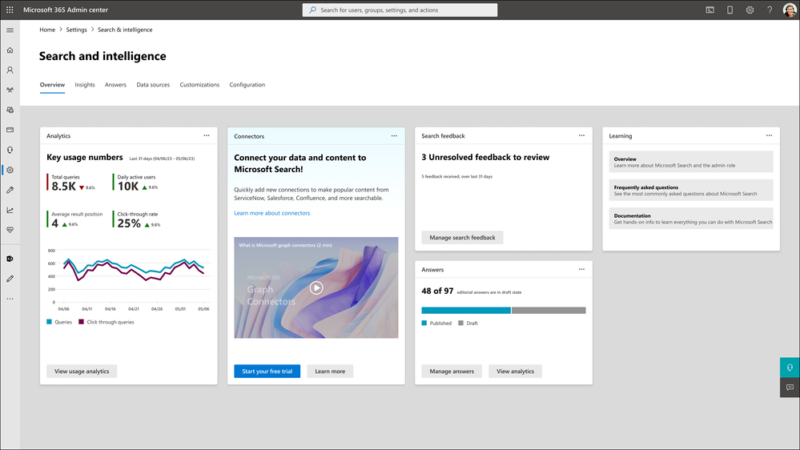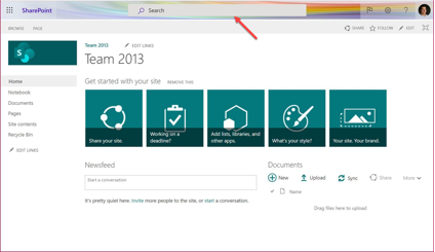By Marc Stephenson |
March 15, 2024
Microsoft Search in Microsoft 365: Introducing new search experiences

When is search not the same as search?
Search is not the same as search – when you use the Microsoft 365 user interface.
The difference between classic search and modern search in Microsoft 365
SharePoint in Microsoft 365 offers both a classic and a modern search experience. Both search experiences use the same search index to find results. And as a search admin, you can’t enable or disable either search experience, both are enabled by default.
Users may already know about the “classic” search. This is available via a pre-built site in SharePoint. Depending on your tenant, this URL is typically can find it here: “yourdomain.sharepoint.com/search” or “yourcompanyname.sharepoint.com/search/pages.” This is the old-style SharePoint search, known as the “Search Center.”
Users get the classic search experience on:
- Publishing sites
- Classic team sites
- Search Center
Today, SharePoint in Microsoft 365 offers a “modern” search experience, too. Called Microsoft Search in SharePoint, Users can access this modern Microsoft Search experience on the SharePoint start page, located in the search box that is placed at the top of the SharePoint, in the header bar.
Users get the modern search experience on:
- SharePoint home page
- Hub sites
- Communication sites
- Modern team sites

When is Modern search the future of search?
Classic search is being phased out, so I don’t recommend you spend any time configuring it. It is not mobile friendly nor modern site friendly. However, the search results are very customisable – where you can easily create custom columns and change the layout of search results. As an information architect, I care about these things!
Modern Microsoft Search is both mobile and modern site friendly, and it has other useful configuration options, I’ll address more of that later.
I’m sure you’ve predicted the “but”, and here it is:
The search results of the modern search experience cannot be as as easily customised as the classic search experience (without entailing a lot of work). That means that your M365 information architecture, especially columns, cannot be made visible in the search results, even though search actually indexes those same columns!
The partial leveraging of an M365 information architecture is a common Microsoft theme. It stems from a misguided view that search is all users need. When in fact, search is just one form of findability that users need. They also need to be able filter, group, sort, navigate and interoperate content – all of which need metadata.
How to make Modern search work
If you’re responsible for search in your organisation, you’ll want to help users be more productive and work smarter with Microsoft Search. So, you will need to tailor the search experience in order to make search even better for your users, ensure content can be found, make the results look great as well as showing relevant search results – in any browser and on any device.
But modern search does not make this easy. Of course, you could just hope for the best and let Copilot do all this work. Good luck with that…
…or you could talk to us. We’ve done it before! We’ve gone through the pain of this, so you don’t have to!
Read more about Microsoft Search configuration
To learn more about configurable search in Microsoft 365, check out Marc’s previous blog in this series: Microsoft Search – helping users without needing AI.

